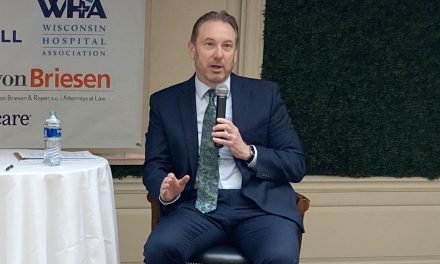
MCW: Better breathing for sleep apnea patients
Contact: Maureen Mack (mmack@mcw.edu), Cellular: 414-750-5266, Office: 414-955-4700
A research scientist from the Medical College of Wisconsin (MCW) has received a three-year Mentored Career Development Award from the Clinical and Translational Science Institute of Southeast Wisconsin (CTSI) to study the role of pharyngeal tissue properties in obstructive sleep apnea (OSA).
Guilherme Garcia, Ph.D., assistant professor of otolaryngology and communication sciences and a member of the Biotechnology and Bioengineering Center at MCW, is the recipient of one of the four grants awarded this year by the CTSI. This grant mechanism provides up to $140,000 per year in salary and benefits, as well as $25,000 in research support. In addition to the financial support, the grant also provides mentored training opportunities for junior faculty working in clinical and translational research who want to become dedicated, independently funded researchers. Dr. Garcia’s mentor over the next three years is John Rhee, M.D., M.P.H., the John C. Koss Professor and Chairman of Otolaryngology and Communication Sciences at MCW. In addition, Dr. Garcia will be mentored by Tucker Woodson, M.D., professor of otolaryngology and communication sciences at MCW and director of the sleep center at Froedtert Hospital.
Computational modeling is the use of mathematics, physics, and computer science to study complex systems by computer simulation. The goal of this project is to quantify the soft tissue properties in the pharynx using computer simulations and in vivo measurements. These soft tissue properties are important because it is the interplay between tissue properties and airflow that causes snoring and airway collapse in obstructive sleep apnea.
Drs. Garcia, Rhee, and Woodson will develop computational models to understand the complex interaction between airflow and tissue mechanics in OSA patients, which in the future may help surgeons to identify more precisely the primary site of airway collapse in the pharynx.
The goal of the CTSI is to create synergy through collaboration, and studies are specifically designed to lead to major future research support. The projects explore findings that have the potential to be translated into clinical practice and community health, and are led by investigators at the CTSI’s eight partnering institutions: the Medical College of Wisconsin, Marquette University, Milwaukee School of Engineering, UW-Milwaukee, Froedtert Hospital, Children’s Hospital of Wisconsin, the Clement Zablocki VA Medical Center, and BloodCenter of Wisconsin.
CTSI is one of only 62 medical research institutions funded by the National Institutes of Health (NIH). Working together, the CTSI institutions are committed to improve human health by streamlining science, transforming training environments and improving the conduct, quality and dissemination of clinical and translational research. The CTSI program is led by the National Center for Advancing Translational Sciences (NCATS), part of the NIH.
Support for the Mentored Career Development Award Program is provided through the CTSI.





